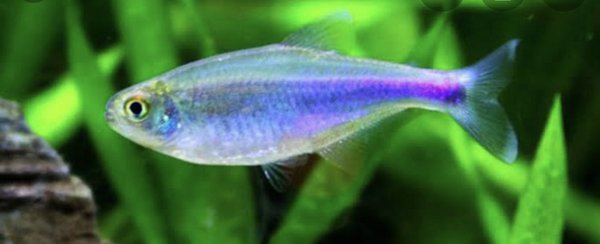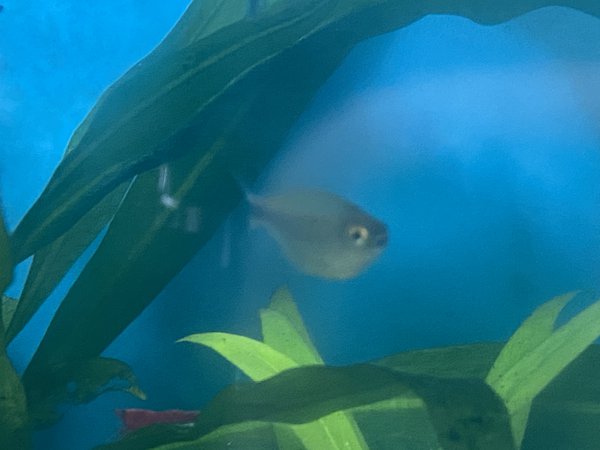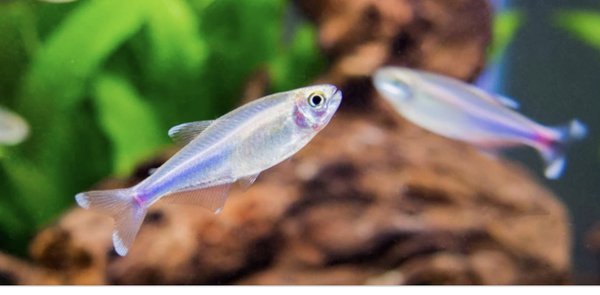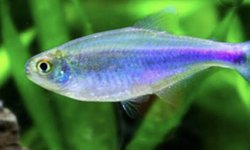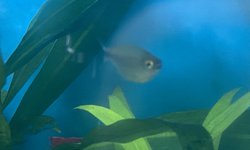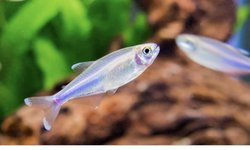4 Blue Tetra (Boehlkea fredcochui
Characins - Tetras, Pencilfish, Hatchetfish, lot number 175-1Blue Tetra (Boehlkea fredcochui)
For those aquarists looking to add something a bit different to their tanks, consider the Blue Tetra for a beautiful splash of color. The genus Boehlkea is a rarity, both in the wild and in captivity, and it is only in recent years that this pretty little tetra has become more commonly available thanks to an increase in its aquaculture.
B. fredcochui was scientifically described in 1966 based upon specimens collected for the aquarium trade. These were sourced from the Upper Amazonian tributaries found in Columbia, but recent surveys of these waters have subsequently found it to be quite rare. Recently, a second species (B. weitzmani) was described from the rio Japurá of Brazil. It differs in having a prominent spot near the pectoral fin.
The habitat for these fishes are small forested streams, where the water is relatively cool and acidic and frequently stained brown by the tannins of fallen leaves. This should give an idea for what an ideal aquarium setup would consist of, though captively bred specimens should accommodate a wider range of parameters. Low acidity is not required for keeping this fish healthy, though it will likely aid in efforts to breed it.
Boehlkea belongs to a subfamily of tetras (the Stevardiinae) which has relatively few representatives within the aquarium trade, but one noteworthy exception is the Emperor Tetra (Nematobrycon palmeri). Among their subtle similarities is the particular arrangement of their teeth.
As with any of the smaller South American tetras, stick to smaller and more docile tankmates. There are a wide variety of suitable characins from the Amazon which would work perfectly, such as the Neon Tetra (Paracheirodon innesi) or the Rummynose Tetra (Hemigrammus rhodostomus). The aforementioned Emperor Tetra would make for an intriguing pairing that is sure to wow all your ichthyological acquaintances. Smaller rasboras, rainbowfishes, blue eyes, barbs and danios would also lend themselves well.
Remember to keep this species in a large group for best effect, and feed a mix of dry and frozen foods. Though it’s diet has not been studied, Boehlkea can be presumed to feed on both plant and animal matter, but it poses no threat to aquarium foliage. Of course, the streams it comes from wouldn’t have much in the way of live plants anyways.
More information from google.com
| Quantity: | 4 |
| Seller: | Tiki (All lots from Tiki) |
| Winner: | $36 Jsparent |
| Ends: | April 29, 2021, 9 p.m.Ended |
| Location: | VT - South Burlington |
| Views: | 62 views, 4 watching |
View all lots for The NEC Virtual Convention Auction
